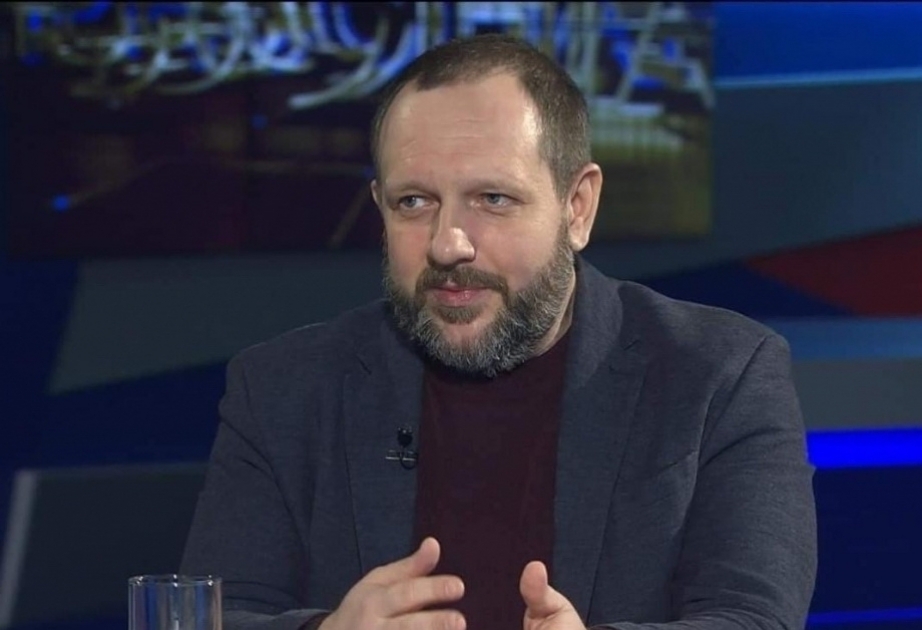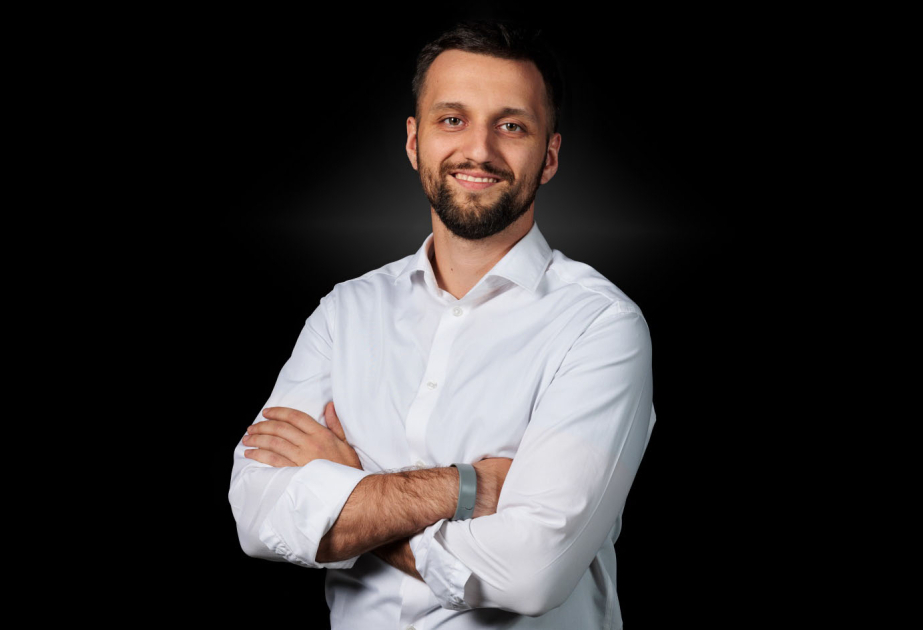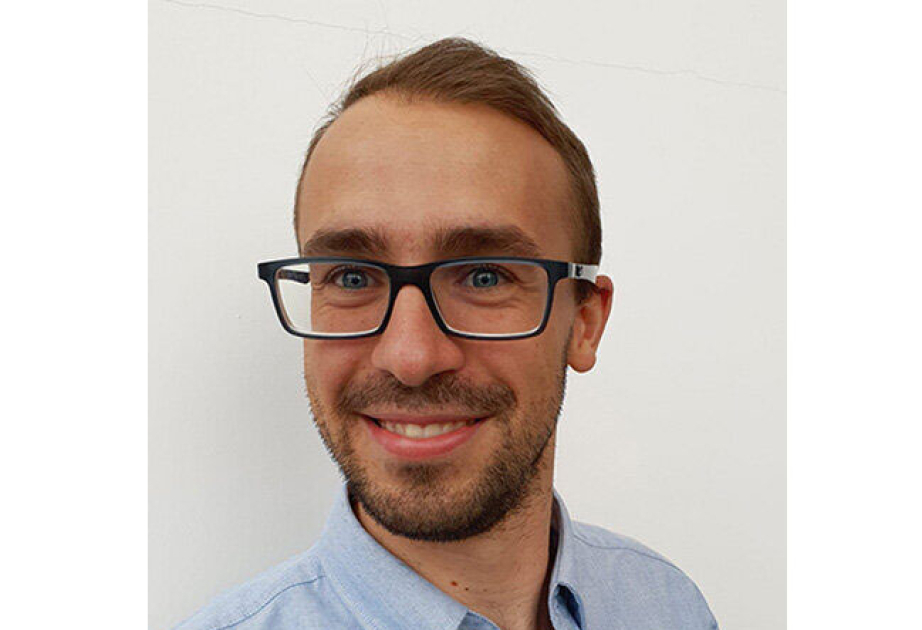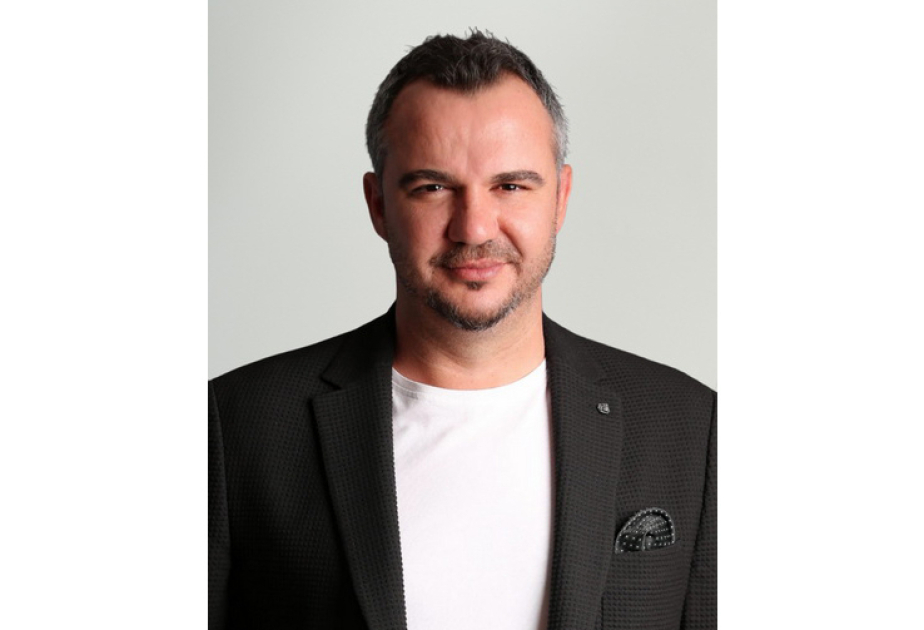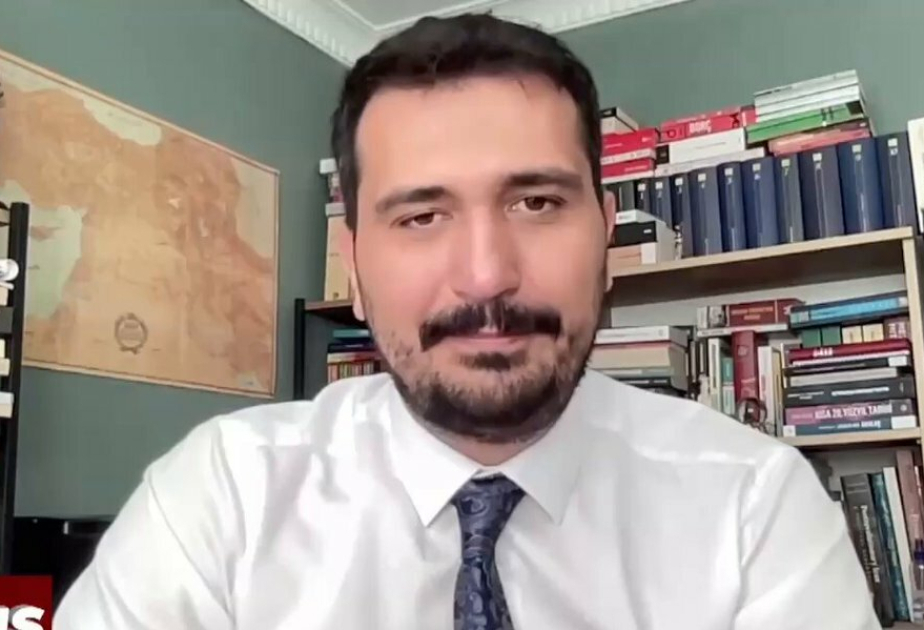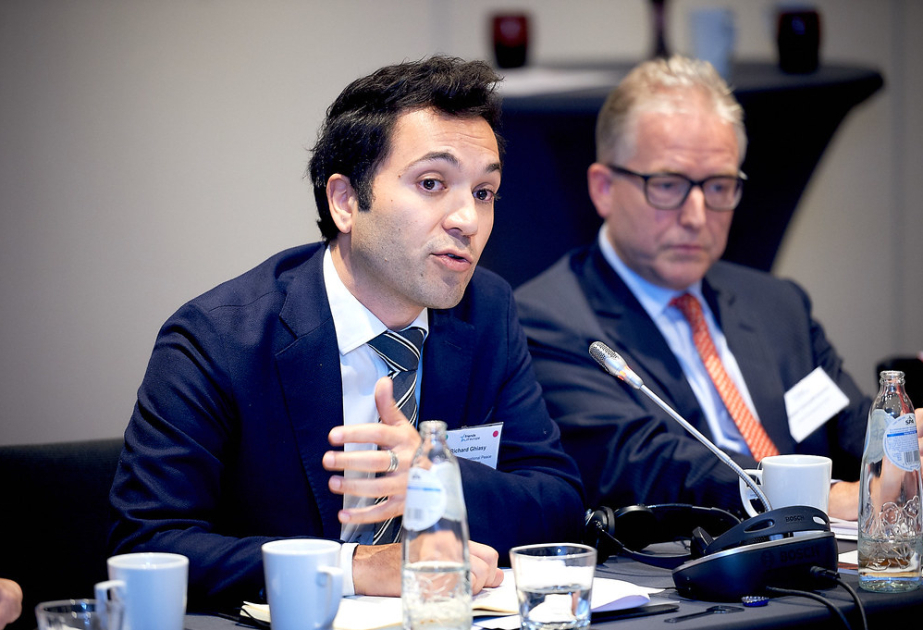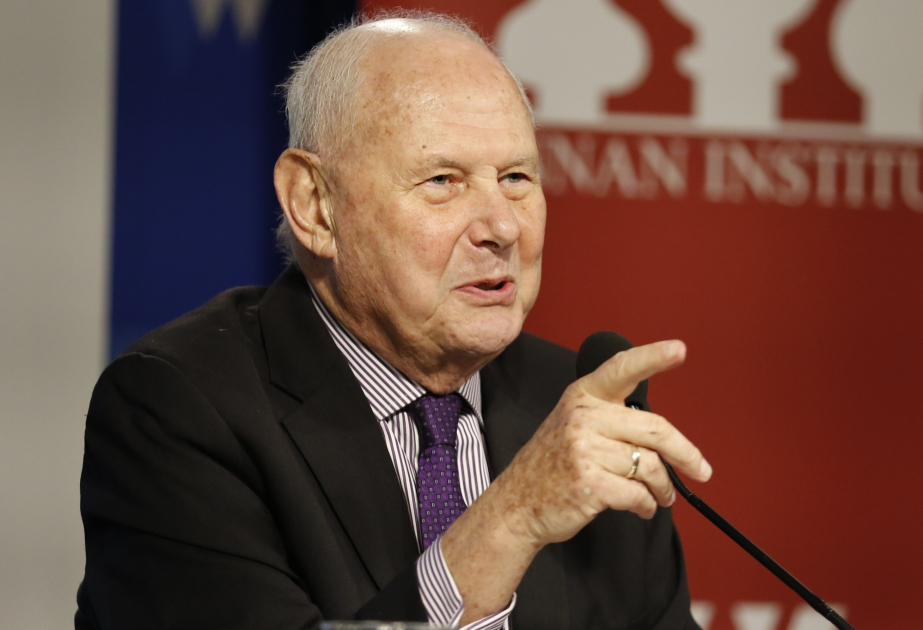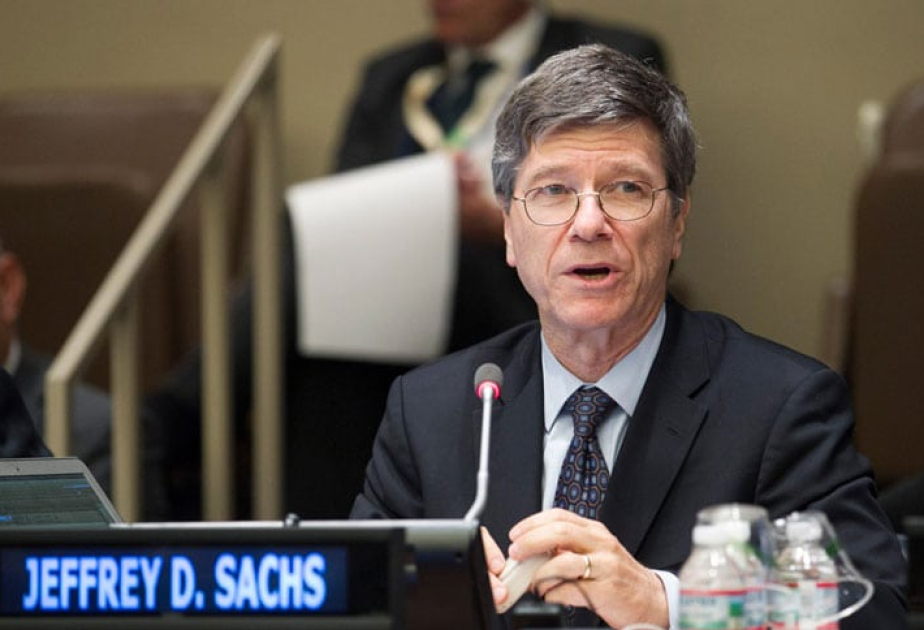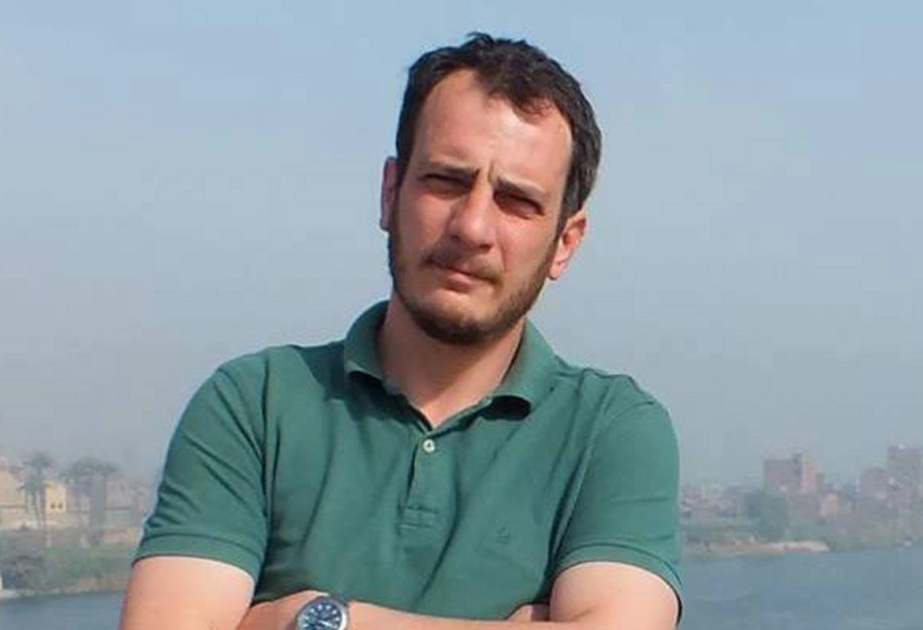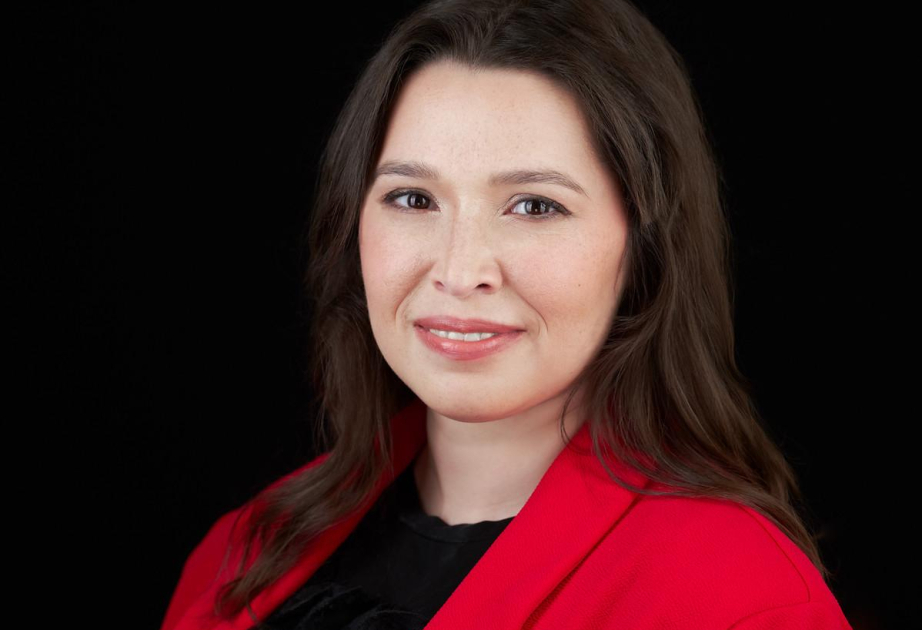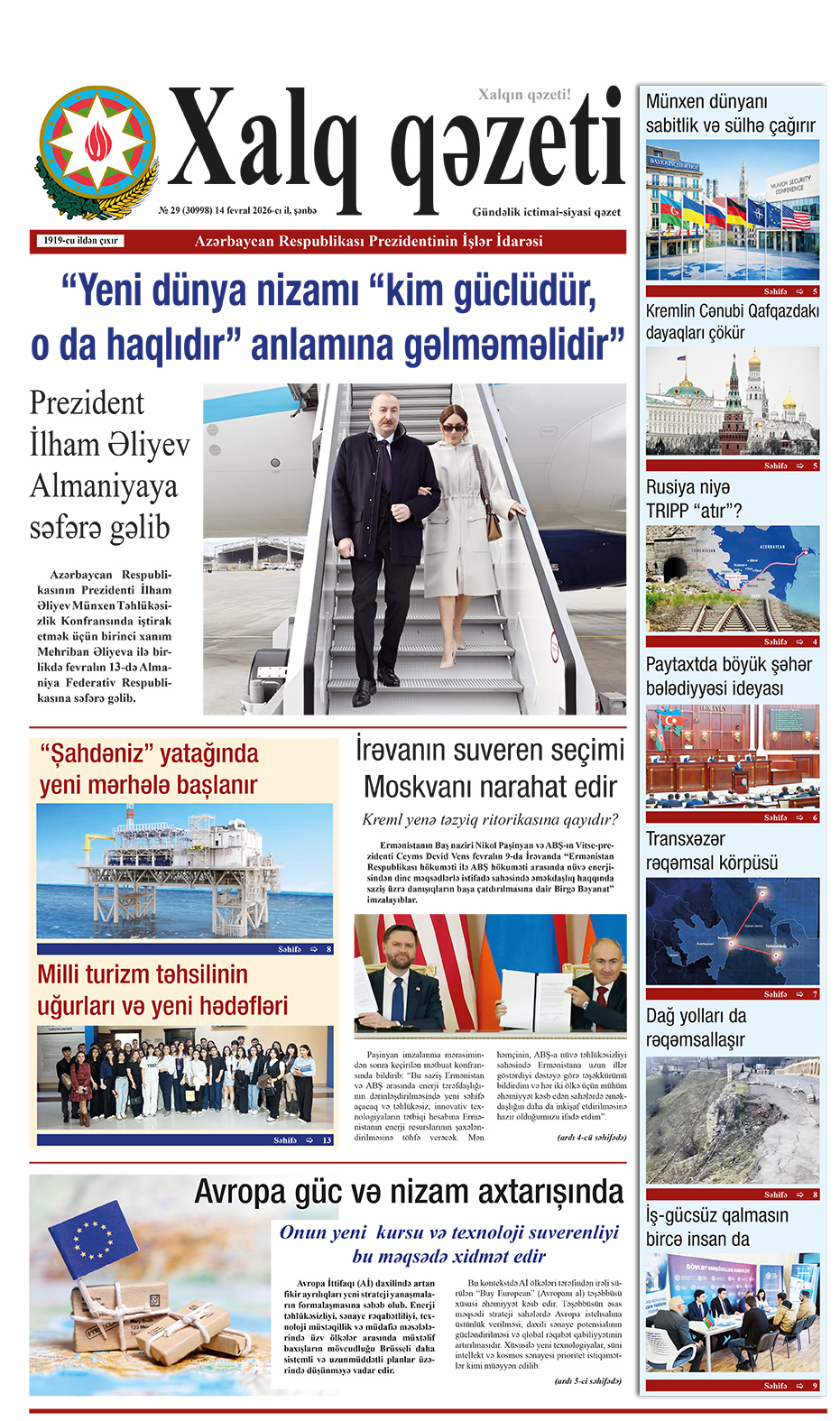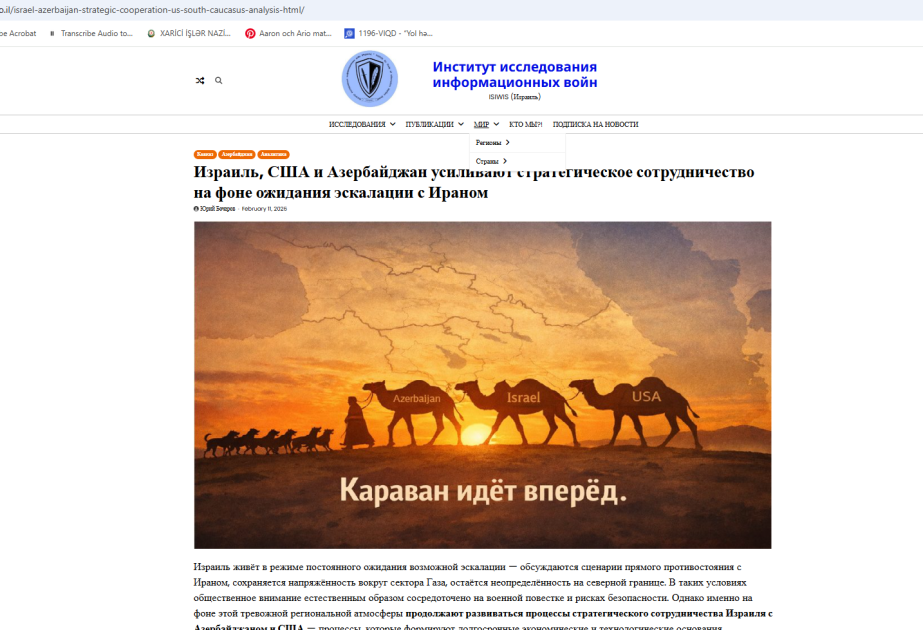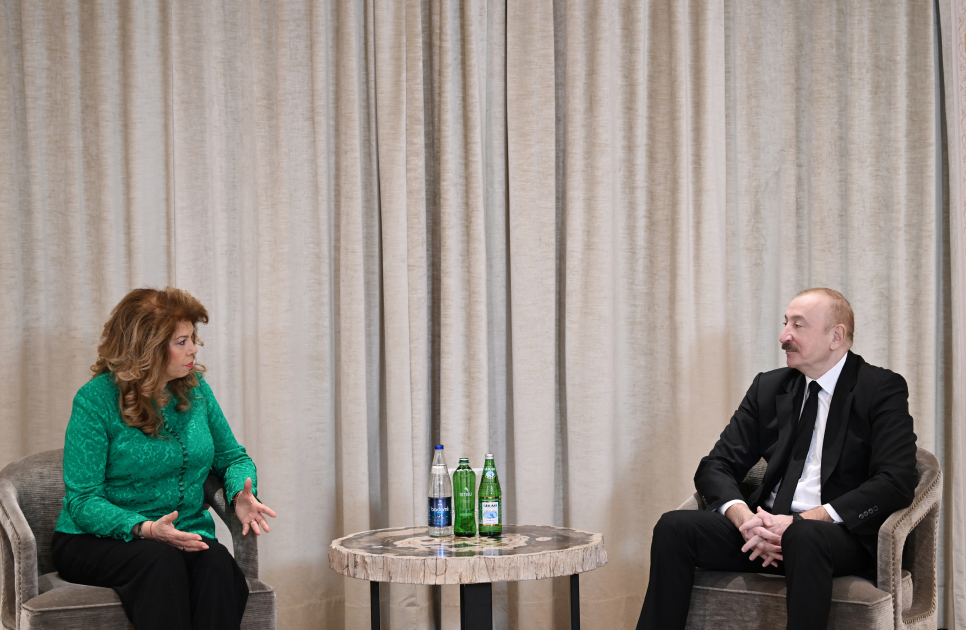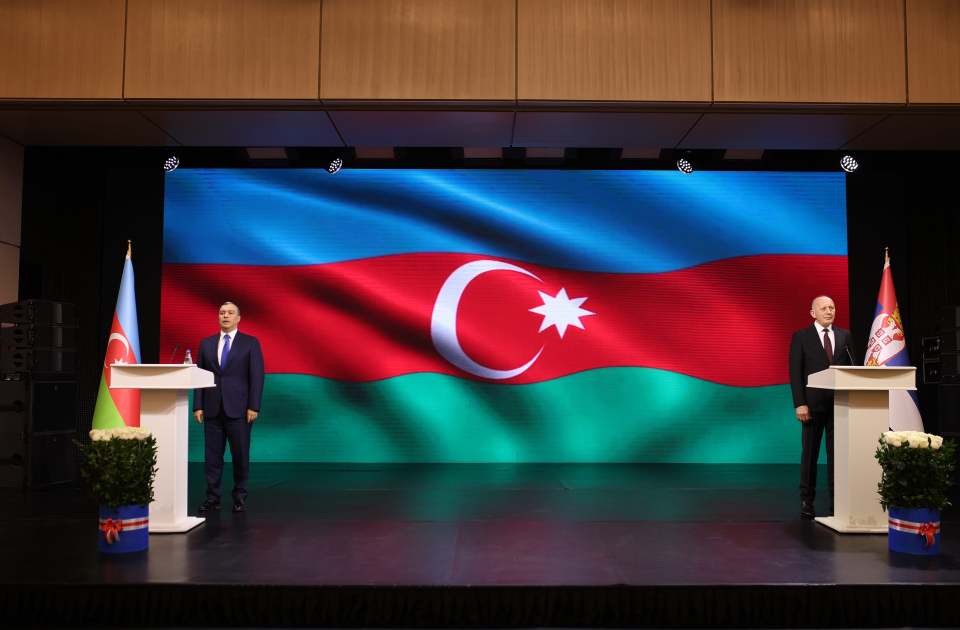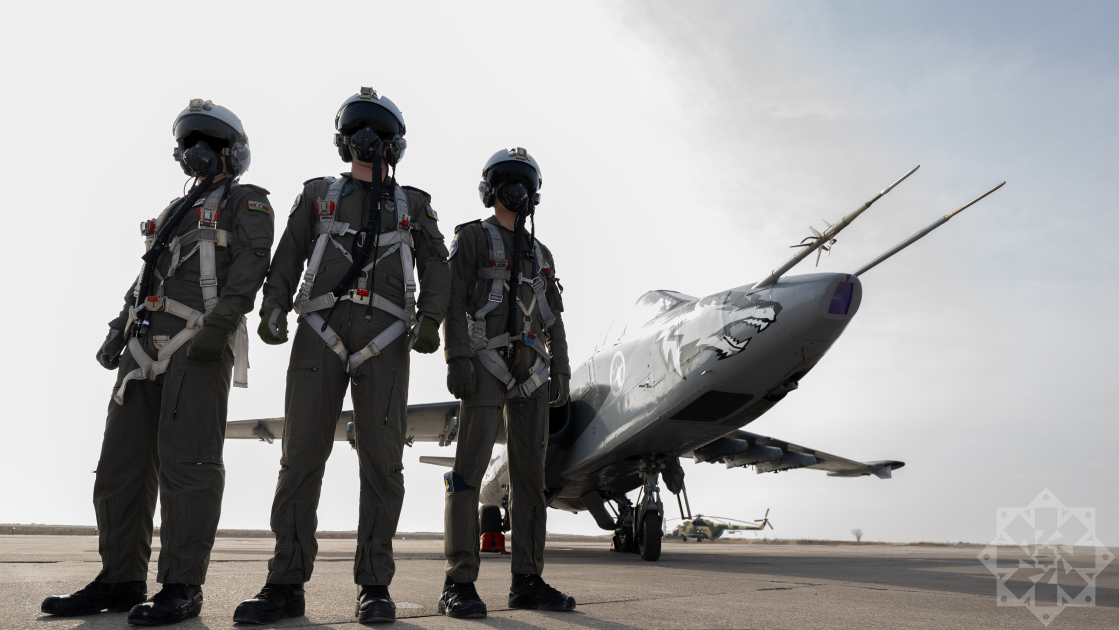Azerbaijani nation rightfully ready to repose its trust in President Ilham Aliyev for the governance of state INTERVIEW
In an interview with AZERTAC, Russian political analyst and head of the expert-analytical network PolitRus Vitaly Arkov stated that the convincing victory of Ilham Aliyev is absolutely evident in the upcoming presidential elections in Azerbaijan on February 7. The Azerbaijani nation is entirely justified in entrusting him with the governance of the state once again.
- One of the key points in President Ilham Aliyev's interview with Azerbaijani television channels on January 10 was his statements regarding the signing of a peace agreement with Armenia. The head of state specifically stated that if an agreement is reached, the document will be signed. However, in the absence of an agreement, negotiations may either continue or be halted, emphasizing that both scenarios are possible. How would you analyze the current situation surrounding the peace treaty negotiations?
- Azerbaijan is actively pushing for the signing of a peace agreement, although Armenia should be the most interested party as it would allow the country to finally break free from the blockade and open up broad prospects for economic cooperation with neighbors, making it advantageous for its future participation in extensive trans-Eurasian transport and logistics projects.
Azerbaijan is also interested in a peace agreement because it would address a range of issues, such as the unresolved situation with enclaves. Additionally, the degree of revanchism in Armenian society and the army remains high, leaving room for potential new military provocations. While Armenia is currently militarily weak and poses no problems for Azerbaijan, the French-initiated arming of Armenia with offensive weapons raises concerns about a threat in the medium term.
It's worth noting that Baku is not imposing its terms on Yerevan but is calling for more active discussion and the development of a compromise solution.
At the same time, it is crucial for Armenia not only to sign a foundational document in its relations with Azerbaijan but also to adhere strictly to all its provisions. However, the current Yerevan regime faces apparent difficulties in this regard. We all remember how Nikol Pashinyan openly sabotaged a significant portion of the trilateral statement of November 10, 2020, and subsequent agreements based on it. He either undermined the essence of the document or distorted its meaning in a way that favored himself.
- During the interview, President Ilham Aliyev also responded to a question about the eight Azerbaijani villages still under Armenian occupation, stating that all enclaves must be returned...…
- The matter of enclaves stands out as a pivotal aspect in the ongoing discussions between Baku and Yerevan concerning the prospective peace agreement. This is because, in each case, it involves the fate of specific individuals, and formalism is entirely unacceptable. Additionally, any escalation where Armenian actions compel the Azerbaijani leadership to resort to the use of force is deemed undesirable.
- The issue of the anti-Azerbaijani policy of official Paris remains relevant, and this matter was also discussed during the head of state's interviews with local television channels. What, in your view, is France attempting to accomplish by openly attacking Baku following the conclusion of the Armenian-Azerbaijani conflict in 2020, and what motives do you believe underlie its recent persistent provocations against Azerbaijan?
- As I mentioned earlier, the South Caucasus is not historically an area of interest for France. Besides the major powers in the region - Russia, Türkiye, and Iran - an external player historically has been the United Kingdom (China is also increasing its presence in the region, but that is a topic for a separate conversation). Despite all the complexities and tensions on other global “platforms”, all four of these powers have managed to reach a consensus on the South Caucasus “platform”, advancing their interests while taking into account the interests of others. However, France unabashedly intrudes into foreign territory, using Armenia for this purpose.
The French ruling elite, firstly, is attempting to retaliate against Russia and Türkiye for their support in reigniting a people's liberation war in several African countries. As a result, French colonizers are being expelled from these nations, having replaced their signage with globalization but not altering their tactics. They continue to exploit the natural resources of their colonies, pushing the indigenous population further into poverty. Russia and Türkiye offer African countries a genuinely mutually beneficial and equal partnership, the fruits of which are already evident.
Secondly, it is becoming increasingly evident that the South Caucasus is turning into one of the key hubs for major Eurasian transportation and energy corridors. Large French businesses, with Emmanuel Macron as their protege, are logically trying, by all means, to "join" high-margin projects. Since, as noted earlier, France is not well-received in this region, previously employed tactics of pressure, threats, and blackmail, as seen in Africa, come into play.
- In Azerbaijan, a snap presidential election is approaching. What are your predictions regarding its outcomes?
- The convincing victory of Ilham Aliyev in the elections is absolutely evident: the Azerbaijani nation, especially after the triumph in the Second Karabakh War and the return of occupied territories, is rightfully prepared to entrust him with the leadership of the state once again, collaboratively shaping the future of the new Azerbaijan.
Indeed, the mention of "new" is significant, as it is evident that Azerbaijan has emerged as a different state and nation from all the described events. It's not just about military might and the greatness of the victors but a fundamental shift in worldview as a whole.


